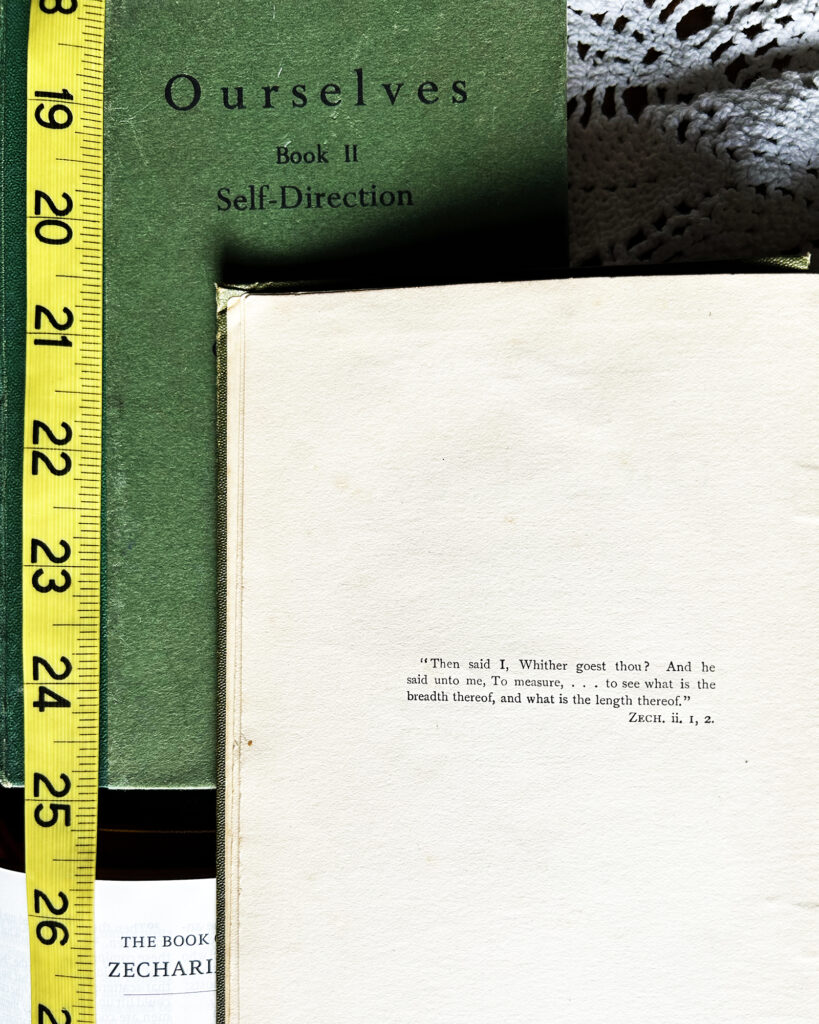CMP Review 2023-10-31
October 31, 2023

Just after the title of the first edition of Ourselves, Charlotte Mason devoted an entire page to a line of Scripture:
Then said I, Whither goest thou? And he said unto me, To measure, … to see what is the breadth thereof, and what is the length thereof. (Zechariah 2:1–2)
The prophet was discussing the measurement of Jerusalem, but Miss Mason had a different measurement in mind.
In 1933 Elsie Kitching had been leading the work for ten years after the departure of her friend and mentor Miss Mason. She was facing pressures. “A father wrote the other day,” she explained. “‘My mother belonged to the P.N.E.U., but I want something which recognises the modern standpoint. The P.N.E.U. must take modern scientific, metaphysical and psychological thought into its ken.’”
Hadn’t Mason herself written that her philosophy “is in line with modern thought and fits every occasion”? Wasn’t it time for Elsie Kitching to move with the times and update the method, as some thought Mason herself would have done?
No. “The principles which Miss Mason has given us are fundamental truths which are not dependent upon ever-changing theories in modern thought,” declared Kitching in her landmark 1933 address. With measuring line in hand, she tested the latest theories and found them wanting.
Ninety years later voices are still calling for changes and updates to the Charlotte Mason method. It’s time to revisit Kitching’s “Measuring Line” and test the theories that press upon us. And in the process we will come face-to-face with the measurement Mason had in mind on the opening page of Ourselves: the measurement of the immeasurable.
Read or hear Elsie Kitching’s challenging essay, now available online for free for the very first time. Find it here.
@artmiddlekauff